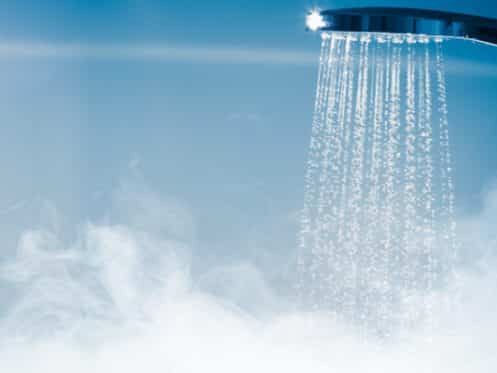For a long time, most homes here in Glendale, AZ, have relied on traditional water heater tanks to serve their hot water needs. They’re efficient, reliable, and based on mature and time-tested technology. However, even if plenty of people don’t know it, they’re not the only option anymore. Since the 1970s, there’s been another type of water heater available, called a tankless water heater. And although they’ve yet to displace the traditional water heater tank as the most common type of hot water system in American homes, there are several good reasons why they might in the coming years. Here’s an overview of how tankless water heaters work, their pros and cons, and how you can decide if they’re a good option for your home.
What Is a Tankless Water Heater?
As their name suggests, tankless water heaters don’t heat water and store it for later use. Instead, they turn on and supply hot water on demand whenever you need it in your home. For that reason, they’re much smaller than traditional hot water systems. Just like those systems, though, they do rely on electric or natural gas-powered heating elements to function.
In the case of a tankless water heater, though, the heating element must reach far higher temperatures than in a system with a tank. This is because a tank system can take its time to raise the temperature of the water it stores since it’s not meant for immediate use. A tankless system, by contrast, must heat water to the temperature you want within moments of turning on, lest you have to wait for the hot water you need.
How Do Tankless Water Heaters Work?
Tankless water heaters are rather straightforward in their operation. When you turn on a faucet in your home, the tankless water heater detects your demand for hot water and turns on to supply it. To do that, it engages a heating element that either uses electric resistance or burns natural gas. The heating element transfers heat to the water as it passes through an aluminum heat exchanger system. From there, the now-heated water travels through your home’s supply lines until it reaches the faucet you’ve turned on.
The Benefits of Tankless Water Heaters
The main benefit of tankless water heaters is that there’s no limit to how much hot water they’re able to supply. As long as they have a steady supply of electricity or gas to heat water, they’ll keep producing it. Unlike water heater tanks, there’s never any sudden loss of hot water when the tank empties.
Plus, tankless water heaters also tend to boast higher overall energy efficiency compared to traditional systems. This is mostly because hot water tanks waste significant amounts of heat energy while they sit idle. When you’re not using the hot water in your home, a traditional unit will still turn on periodically to maintain the temperature of its stored water.
Since a tankless system never turns on unless you need it, there’s less idle energy waste. For a home that doesn’t use much hot water, that translates into major energy savings. According to the US Department of Energy (DOE), homes that use fewer than 41 gallons of hot water per day see between 24% to 34% of energy efficiency gains with tankless water heaters compared to conventional ones. And even high-usage homes can benefit. According to the DOE, homes that use up to 86 gallons of hot water per day can still reap between 8% and 14% of energy efficiency gains.
Another benefit of tankless water heaters is longevity. On average, you can expect a tankless water heater to last for around 20 years. That’s about double the lifespan of a comparable tank-based system. Plus, it’s often possible to replace individual components within a tankless water heater system and extend its lifespan even further.
The Disadvantages of Tankless Water Heaters
Of course, tankless water heaters aren’t perfect. If they were, every home in Glendale would already have one. There are a few disadvantages that come with tankless water heaters that you should understand if you’re considering one for your home.
One of those disadvantages is a limited flow rate. With a traditional water heater tank, you can use the available hot water in multiple parts of your home at once—at least until the tank’s empty. Tankless water heaters, by comparison, can only heat a certain amount of water at any given time.
Most tankless systems provide a flow rate between 2 and 5 gallons per minute. When you consider that the average shower consumes around 2 gallons per minute, with the majority made up of hot water, that doesn’t leave much breathing room. It means that homes with tankless water heaters can’t always do things like take a shower and do laundry simultaneously.
Then, there’s the fact that a power outage will mean a home with a tankless water heater immediately loses access to hot water. By comparison, a home with a traditional tank system will still have hot water for as long as its storage tank holds out. Although that’s not a very common occurrence for homes here in Glendale, it’s still something to think about.
Finally, there’s also the matter of upfront cost. Tankless hot water systems tend to cost more upfront to buy and install. That’s especially true for homes where they’re replacing a traditional tank system. That’s because it’s often necessary to move water and gas supply lines, as well as make power line changes to accommodate the new system.
When to Choose a Tankless Water Heater
Now that you know how tankless water heaters work and some of their advantages and disadvantages, you may be wondering how to tell if one’s right for your home. There are no hard and fast rules that apply to the decision, but there are a few situations when a tankless water heater makes an especially good fit.
One is if your home doesn’t use much hot water each day. The efficiency gains you could realize in that situation could translate into significant operating savings throughout the lifespan of your system. Plus, low daily usage probably means you won’t run into many flow rate problems, either.
Another situation where a tankless water heater makes good sense is if you’re trying to supply a small part of your home with supplementary hot water. For example, if you add an additional bathroom or a hot tub to your home, you could use a tankless system to supply it.
Talk to the Tankless Water Heater Experts
It’s worth pointing out that it’s possible to install a tankless water heater system in any home, regardless of its hot water needs. All it takes is the proper planning and sizing of the system to ensure that you’ll have enough hot water where and when you need it. The experts here at Christian Brothers Air Conditioning Plumbing Electrical can help you do exactly that.
We offer a complete range of plumbing services to go along with our extensive electrical and HVAC service offerings. That means we’re uniquely positioned to help you select and install a tankless water heater system that’s perfect for your home. We’ve been a trusted name in heating, cooling, plumbing, and electrical services here in Glendale since 1976, so you know you’d be dealing with a team you can trust. So, contact Christian Brothers Air Conditioning Plumbing Electrical today, and we’ll help you choose the perfect solution for your home’s hot water needs!










